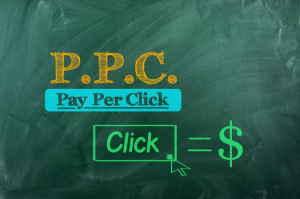Pay Per Click Ads are not SEM

Has Your Yellow Page Rep Made this Claim?
I assist a number of law firms with vendor management and negotiations. One of my attorney clients recently asked me to attend a pitch by a pair of yellow page representatives. He introduced me as his marketing consultant; just a guy taking some notes. I was surprised at how easily they threw out phrases that were meant to mislead. To be clear, pay per click ads are not SEM. Don’t let the claims confuse you.
I spent much of the past 20 years in sales and sales management roles. Over time, I built a recognized level of expertise in evaluating the benefits and limitations of sales presentations, especially when the topic is advertising-related.
After the meeting concluded, my client and I did a “post-mortem” on the information about the program they were pushing. Rather than go into the entire recap, let’s focus on the problem we identified. I’ll repeat my assertion: pay per click ads are not SEM.
Here’s the backstory: The yellow page reps are faced with an ugly reality. Namely, their user base has largely abandoned the yellow pages as an information resource. Much of that traffic migrated to online resources.
When Google became a verb, the decline in yellow page usage became irrefutable.
The various yellow page companies saw a significant drop off in ad sales. They knew they needed to transition to the digital environment to remain in business. They began bundling in template-style websites with advertising packages as a way of placating customers. Those yellow page customer websites were designed as a revenue-retention tool. In most cases, you’ll rarely see one of those sites performing well, organically. However, for the yellow page companies, it at least reduced the bleeding.
Over time, customers continued to migrate ad revenue. The answer seems to have been to aggressively push the online directories and premium listings. You’ll recognize properties such as YP.com, DexKnows.com, etc. They offered the advertisers a way to capture a small piece of the overall, organic search traffic. This enabled the reps to show large figures for overall traffic data (even though some of that may be for very generic searches or include categories that aren’t necessarily relevant). Needless to say, savvy advertisers began to catch on as their advertising expenditures climbed. Obviously, some yellow page clients do generate new customers and so the industry remains.
Many companies (including law firms) began investing heavily in their own websites. They subsidized the online visibility with pay per click (PPC) advertisements. Those are the ads you see at the top and along the right side of your Google search results. Companies are charged each time someone clicks on their ad, hence the term “pay per click.”
The yellow page companies jumped into this game as a quick way to continue to generate ad revenue. They offer to manage these PPC campaigns “for a slight fee.” They convince customers to commit to a monthly PPC budget. Simply hand over more money to the yellow page companies who have suddenly become Internet marketing experts.
Search engine marketing (SEM) and search engine optimization (SEO) are sometimes used interchangeably. The yellow page reps in my client’s conference room took full advantage of a general lack of understanding of either term. Many of the law firms I’ve advised have a basic understanding of SEM/SEO.
I was surprised at how quickly, and consistently, the yellow page reps referred to their program as SEM, but stayed completely away from the term “pay per click” or PPC.
Effective search engine marketing and optimization generally include certain ways of coding the site, various on-page tactics and even off-page tactics (such as link-building). The premise is that you have to actively market your website to the search engines in order to show up in various search results. None of this is easy and results aren’t always immediately seen. That’s why law firms and other companies may decide to incorporate an element of PPC. You can buy ads on the search engines and achieve quick visibility. For some firms, this can be a very solid component, but it comes with a price. But don’t be fooled, by most definitions, pay per click ads are not SEM tactics. It’s simply buying ad space.
If you’re relatively new to Internet marketing, wade in cautiously. An effective online presence depends on layering your marketing approach among various online channels. Don’t fall victim to quick shortcuts. Building a long-term strategy takes time, but can yield enormous results. I advise law firm clients to use a number of channels including: websites, blogging, YouTube videos, legal directories, non-legal directories and, in some cases, social media properties.
At the end of the day, my client decided not to sign up for the yellow page PPC program. We decided to continue to explore marketing options which should have more of a long-term benefit. If you’d like help in reviewing your law firm marking strategy, contact me at (502) 208-9639. There are plenty of ways to spend your marketing funds. You deserve someone who can protect your interest and make sure you spend it effectively.







